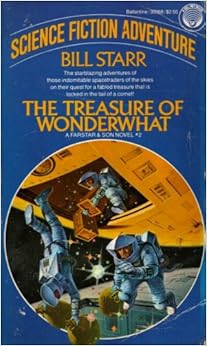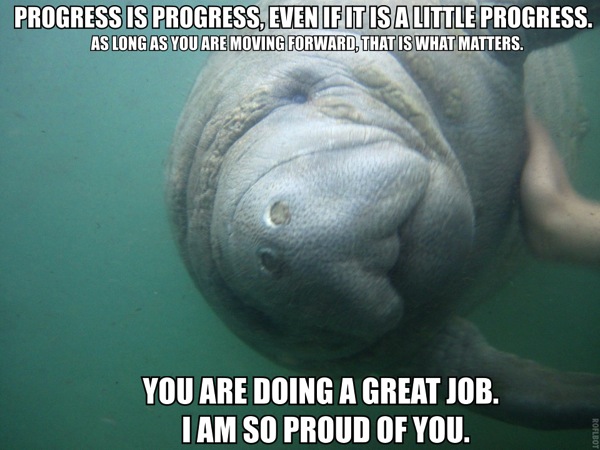On a ramble in the city in the sun
Up betimes and to the office, where I had a lively time in various conference rooms and having lunch. Milo brought Minecraft and a book; we hung out talking about role playing games and science fiction with my co-worker Marc and my team’s intern Kate; then had a strangely nice time (for a day when a lot of technical infrastructure broke and we had to flail around to get things to work). I remarked to Ritu and Kate in our free form working-on-things meeting that I was so happy they are both interrupters. If only one of us was, it would be awkward. But with three rapidly thinking juggernaut talkers we jostled ideas and work around them, getting a lot done and building a group understanding of how we’re reading bugs and documentation, looking at metrics, and making decisions. My other team members are also like this. We can listen too — it is a comfortable mosh pit.
As usual I am wildly impressed by the deep knowledge of so many engineers at work. Stuff breaks or we have conflict and yet so much happens. My goal in going after a job at Mozilla was to be in a huge collaboration to make things bigger than I would ever know how to make on my own (after years of mostly lone projects, from zines to book editing to being a lone developer grubbing away in a dark corner). I am still obsessed with what collaboration can be and how it can be structured, and see interesting traces of generations of idealism echoed in our tools. (insert imaginary digression into c2 and meatball wiki history and LambdaMOO…. ) The answer to “why can’t you delete your bugzilla comments?” is actually this giant wild ride into epistemology and communication and truth but you would not necessarily suspect that if you weren’t there. So many things are like this. You look at a bridge, and if you know what ideals inspired the engineers of the time you understand why it is the way it is. Looking at every object, you have to assume that may be the case, just as every person has a deep background from which they have constructed themselves and been constructed. I was feeling this a lot today. This engineering perspective is why I love reading Henry Petroski….
I did promise a ramble! Milo and I went out along the Embarcadero, playing Ingress. I wanted to go down to the end of the pier near the Ferry Building, on this rare warm day when I had the (faked) energy to be out of the house. The sun baked us, we looked at the painted tiles and poetry quotes along the pier, talked to fishermen (who were catching two foot long sharks) and watched a giant cargo ship (in real life and on MarineTraffic.com) go under the Bay Bridge. Oil tanker, Maltese flag, coming from Benicia. Without even trying, we spent an hour loafing around the pier. Pelicans were diving. People asked me about my mobility scooter. Water sparkling, ferries zooming around, someone in a bathing cap swimming around in the freezing ocean! I love waterfronts because they make me feel like I’m in a Richard Scarry Busy Busy World page!

My plan was then to adventurously take a MUNI train from underground instead of doubling back to get on the F, then transfer to the J to go home Instead, we braved the confusion of underground. The plan: go to the Castro for comic book shopping and dinner. Everything worked out. The train was crowded, but no one was awful. The smellavators, I mean elevators, all worked. We speculated on what it would be like if they just made the lifts into actual toilet stalls. Milo now unfazed by all this chaos while 5 years ago he would have been miserable to be dragged around, needing to check out and daydream or read in order to tolerate it.
I had never been in the Castro underground MUNI station. Weird huh? I knew abstractly that’s what those stairs must be for. But why would I ever go down them? I also have no clue how to get to the underground bit of the Church muni stop. Someday will pop out of it like a gopher and stitch those geographic manifolds.
Everything today was suffused with contentment. I could not stop just quietly enjoying the sunny warmness, the city, thinking on how we were in a place that other people around the world come to on purpose to enjoy.
Pain was terrible today honestly but I was in a state where I could ride it — And enjoy everything.

Cannot do that more than one day in a row. Tomorrow is for working from bed, ice packs on the ankles, and doing nothing more difficult than hobbling out to water the plants on the front porch.
I reminisced a bit to Milo about memories of past SF Pride parades and the Dyke March, and how I feel a little surge of the happiness of coming to SF every time I see the rainbow flags on Market Street. I said how the fact that I roller skated half naked down Market and the next year was in my manual wheelchair hanging onto the back of some strange guy’s motorcycle with my sister pulled along behind me, gives me this weird feeling of strength and history. And how I have been going since 1991, a long time now. We used to take Milo to the playground at Civic Center with my ex Nadine and her family and the kids would just be like, Mom… there is a guy dressed only in balloons. (Yes dear! He’s celebrating! How amusing! Many of the rules of life get broken today!) While I don’t often tell stories about my life to the kids I try to mention at least some of the facts or things that will make them think of their own experiences as existing in a story or history as well and to appreciate everyone around them has experiences as interesting to know as reading a good book. And, I think it would be weird to think of your parent as just your parent, and then 20 years later go, Oh, and by the way surprise she was flouncing around naked in the streets back in the day. Better to know up front so as to get used to the mildly scandalous facts. There is no need to go into details.
So our wandering around today was like my substitute pride weekend. I’ll be out of town this year for work, and anyway, have difficulty keeping up with the crowds. How much nicer to sit in Harvey’s on a mellow day like today — mediocre food but a nice spot to have a drink and gaze out at the rainbow crosswalks – people passing by in their shorts and tank tops. We read the little flyer about Harvey Milk while pondering injustice. Alas, the comic book store was closed on Monday.
Then to avoid the horrors of the 24 at rush hour (always full, passes me up regularly from that direction, rage-inducing) we flaneured down 18th to look out over the park and take the J train. I felt happy thinking of the excellent punk band J Church. Lovely view over Dolores Park. Pointed at our history pet, the Golden Hydrant. (Also, it is a portal, so, hacked it.)
I feel lucky my son can enjoy my quiet pace of wandering around the city and that he is such a good companion for observing and talking, chilling out and reading books in random places. Not for the first or last time I thought of that kind of cheesy sentimental Juana de Ibarbourou prose poem Diary of a Young Mother.
I will be old when my son becomes a man. And when we go out to walk together, I will pretend to be hunchbacked, so that he will seem, at my side, to be more gallant. I will be a little old woman full of crafty tricks. I will learn to stumble once in a while, so that he can support me. I’ll have to feign exhaustion, so that he’ll give me his arm, saying:
“You’re tired, Mom?”
And the girls, who surely will all fall in love with him like fools, will say:
“That crippled old lady on the arm of this handsome elegant man — it’s his mother.”
And I’ll walk on secretly swelled with pride!
Unlike Juana I don’t have to pretend! And yet am more likely to be the support, open the door, carry his books (since I have this handy sturdy exoskeleton).
Part of a plan! Teen fantasy/sf book and comic book club at Borderlands. I will help Milo make it happen this summer. Isn’t it odd that the libraries, despite having a gazillionty kid/teen events, don’t have just like… a get together for kids who love to read? Not an improving aspirational reading list for the summer or a workshop on origami but … talk with people who love to read for fun, who are your age. Milo remarked how it took him until very recently to realize that most other people don’t read for fun but see it as this special educational activity. It’s good to find your people. It boggles his mind that people would consider one form of culture or art or writing to be somehow elite and high and others, not, when obviously that changes over time anyway and with every new art form! The apple doesn’t fall far from the tree in this case! But it’s like he gets to avoid my horrible childhood snobbery!
I thought of my nice day yesterday going out with Danny to eat oysters and weird candy cap mushroom creme brulee. We had just a day to catch up between two of his work trips and a ton of ideas to talk about, his talk at PDF, the general odd zeitgeist, what will happen with the elections and disinformation and astroturfing (my code for this is just muttering “venezuela” which if you followed the last 10 years of politics there and online arguments you will know means, you can’t tell what the hell is going on and everything is fucked). (Obviously that political situation is not special to VZ; it’s just that I was paying attention to it at the time.) We talked about writing projects. Gossip — ranging far afield — the psychology of everyone — ourselves — etc.
So, meanwhile, I complain about spending a lot of time just being in bed or on the couch. And sometimes resent that going to the drugstore 3 blocks away is my outside of the house activity for the week. How pathetic that little bit of happiness seems when I feel down or when I’m wishing to travel all over the world. But it isn’t really a bad thing and I think never will be. When I’m 90 I’ll sit on a bench feeling the sun, taking pleasure in that. It will be just fine.
A small but determined ambition: have periodic short writing times, with many different people, including Milo and Danny…. Some sporadic instances of Writing Together but separately time and talking over projects, rather than a regular habit which none of us can stick to because of the structures of our lives. How will I model sustainable feminist activism? This question my therapist posed has been a fine mantra over the past 8 months or so.
This last week I thought a lot about my friends and people in my life, thinking of them with huge affection. I want to write letters to everyone. What if I just write nice letters to people over this next year? But not “just”. The idea I was ticking over at this time last year was to do an anthology that is exactly to my taste of memoir and essay. I want to pull people together to represent this moment as intensely as possible. I am picturing this process and this artifact and will make it happen. I want to get out a lot of my books and stuff about diaries, and memoir, and feminist ethics, and jump from thought to thought to see what gets thrown into the mix before this project coalesces. Last year’s events made it hard for me to settle. Now I think I know what to do here. Think on history and activism. Riot grrrl slips into the realm of the mythical past. Moments flame up like comets. Collisions are bright shining. You know the Combahee River Collective didn’t last forever. But the people carried on their work in different trajectories. What they built still stands. The effort to collaborate that intensely is not failure because it’s ephemeral – Like all relationships.
Anyway, back to the day.
I felt content and good today. The good wishes of hundreds of people casually on Facebook (that exploitable butterfly) made me think fondly of everyone and I felt loved and appreciated for whatever it is I’m doing now, though it isn’t splashy or what I had planned. People are cynical about that “shallow” social interaction but I do love it. What could be wrong about thinking of another person for a moment, even if you don’t have them in mind all the time, or even for years?
Going across town is still a big deal for me that makes me happy. I do miss being able to get in my car and drive around exploring waterfronts and going all the places possible from the map. Instead: this is the time I’m in this city, in this way, and I’m going to enjoy it.
Small ambition!! Friday I am thinking to get a tres leches cake with pineapple whipped cream from Lelenita’s and invite a few people over. Cake time! Maybe… cake and poetry? Salon time; small private spaces. My feeling of not being ready to write a new different (poetry) book solidified oddly while Danny and I talked at our fancy Sunday lunch. I begin to see the problem there. It is our view of the failures of our collectives. Returning to our romantic idea of the End of Greatness. To get there I need to look further somehow.
Obligatory mention of books: Cixin Liu – just read everything of his that you can lay your hands. The novellas and short stories are beautiful. Read many of them in a row! You won’t be sorry.






